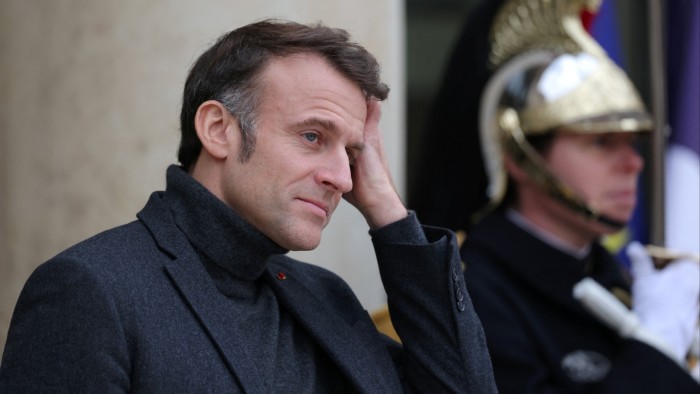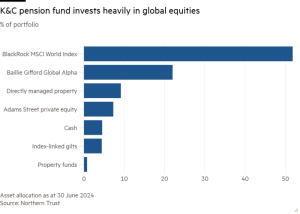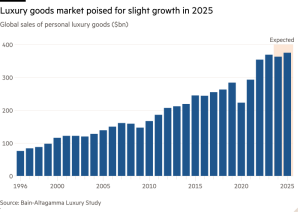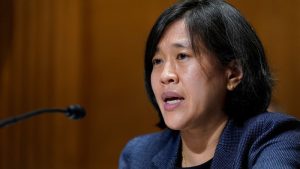Macron eyes political truce as he struggles to find new French premier

Unlock the Editor’s Digest for free
Roula Khalaf, Editor of the FT, selects her favourite stories in this weekly newsletter.
French President Emmanuel Macron is exploring a non-aggression pact with moderate parties of left and right under which he would concede to some of their demands and they would promise not to censure his next prime minister following the unceremonious ousting of Michel Barnier.
In an effort to calm the political turmoil in France, Macron on Tuesday held talks at the Elysée palace with party leaders, during which they laid out their demands and hinted at premiers they would object to. Politicians on the left say they do not want François Bayrou, a centrist politician who has long supported Macron.
Macron excluded from the talks the far-right Rassemblement National (RN), the largest party in the National Assembly, and the far-left France Unbowed (LFI), which both teamed up with other leftwing parties to vote out Barnier after just three months in office over his budget plans.
A non-aggression pact between Macron and a collection of parties in the centre would be far looser than a full coalition and weaker even than the power-sharing agreement that Macron’s centrist Renaissance party sealed with the conservative Les Républicains (LR) after Barnier was named in September.
Instead, it could lay out a basic list of consensual policies to pursue while setting aside more contentious issues, and allow a new government to accomplish the important task of passing a 2025 budget.
On Wednesday, government spokesperson Maud Bregeon said Macron had told the weekly ministers’ meeting that the consultations would be unlikely to lead to a new coalition. “There is currently no broader base than the one in place today,” she said, referring to the centrists and LR who had supported Barnier. “And so it now remains to be seen whether some are willing . . . to agree on a principle of not censuring.”
Barnier was toppled last week over his proposal for a deficit-cutting budget once Marine Le Pen’s RN cast the decisive votes to remove him and kill the draft budget. He has become the shortest-serving premier and only the second ever to be brought down since the French fifth republic was created in 1958.
While the horse-trading over a new premier continues, Barnier’s caretaker government is expected to propose a stop-gap law aimed at preventing a US-style shutdown of public services, given that a full budget is unlikely to be finalised before the end of the year. The so-called special budget law — only the second ever — was presented to ministers on Wednesday.
France’s latest political crisis began after Macron called a snap election in June only for his camp to lose badly, delivering a lower house of parliament that is now divided into three irreconcilable blocs — a leftist alliance known as the New Popular Front (NFP), a smaller centrist grouping of several parties including Macron’s, and much strengthened RN on the far right.
Macron has again begun searching for a new premier, cycling through names in recent days as parties reject various possibilities. An announcement expected in the coming days would usher in Macron’s fourth prime minister in two and a half years.
Whoever is named will have as their first task in January to pass a budget for the coming year at a time when deficits are far above EU limits.
“The most important issue is obviously knowing who will be prime minister, but even more so, how long they will be able to stay in office and on what basis,” said Brice Teinturier, a pollster at Ipsos.
President Macron also told the party leaders that he wanted to avoid calling early elections again, according to a French official — a notable pledge since most MPs believe they will face a new vote from July once the waiting period of a year since the last election has passed. Macron also said he wanted a future government not to be reliant on the support of the RN for its survival as Barnier’s was.
To cut out the RN, Macron will need to reach an agreement with the Socialists (PS) who hold 66 seats, and perhaps the Greens with 38 and the Communists with 17.
Socialist party chief Olivier Faure has shifted position since last week, when his party voted with the far left and the far right to censure Barnier, and has now opened the door to compromise — although he insists on Macron choosing a new premier from the left.
“One cannot spend one’s life saying no. Sometimes one must move forward,” Faure told BFM on Wednesday morning. “I want a left-wing prime minister who is open to compromise. We on the left must have the power to lead, but we must also accept the idea that, since we do not have an absolute majority, compromise and mutual concessions are necessary.”
Co-operation by the PS could spell the end of the NFP, the leftwing alliance created for the snap elections in June. Faure insisted that he was not breaking up the NFP, but Jean-Luc Mélenchon, the far left’s standard bearer and leader of the LFI, has been scathing in recent days.
Mélenchon has accused the PS of betrayal, saying they have made a “catastrophic error” and urging them to “slam the door” on the talks with Macron.
Faure and other leftwing politicians have also demanded that the next prime minister promise not to use the 49.3 clause of the constitution to override parliament to impose laws — a method Barnier tried with his budget and previous French prime ministers also used extensively.
#Macron #eyes #political #truce #struggles #find #French #premier





